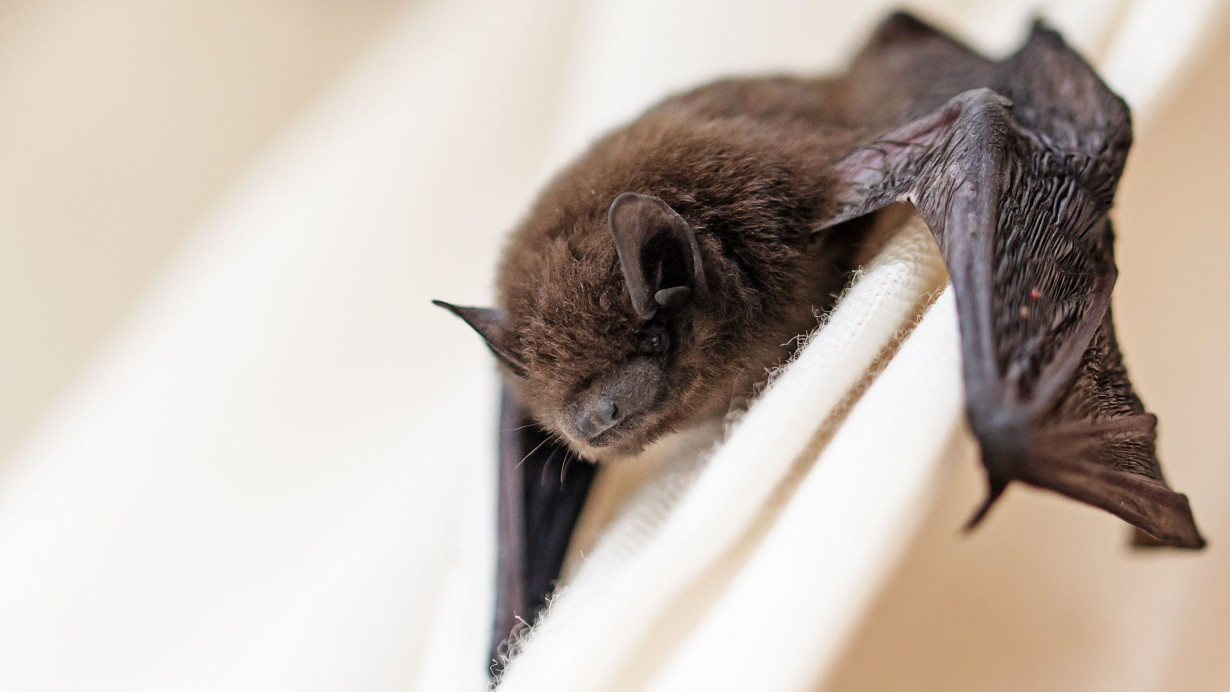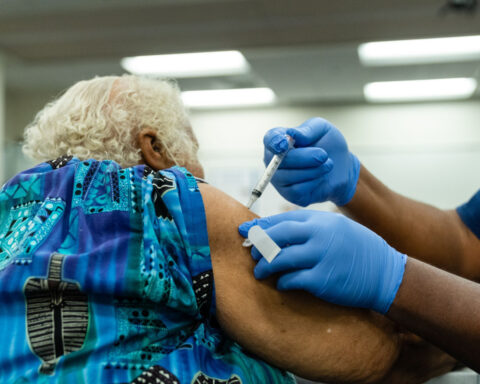(CNN) — Scientists at the Wuhan Institute of Virology in China have discovered a new lineage of a coronavirus in bats that can enter human cells in a similar fashion as SARS-CoV-2, the virus that causes Covid-19, according to a recently published study. But there are no reported infections in humans, and experts say it’s not currently a threat to public health.
Like SARS-CoV-2, HKU5-CoV-2 can enter cells via the human ACE2 receptor protein on cell surfaces. The newly identified coronavirus is a part of the same family as the virus that causes deadly Middle East respiratory syndrome, or MERS.
According to the study, published last week in the journal Cell, scientists found the coronavirus in anal swab samples taken from a bat of the genus Pipistrellus. A lab experiment showed that the virus could infect human cells.
Pointing to the fact that researchers have not detected any infections in humans, the US Centers for Disease Control and Prevention said in an email to CNN that it was aware of the publication “but there is no reason to believe it currently poses a concern to public health.” The CDC added that it “will continue to monitor viral disease activity and provide important updates to the public.”
Scientists say the newly identified coronavirus doesn’t infect cells as efficiently as the virus that causes Covid-19. But with the work originating at the Wuhan, China, lab that’s been the target of questions about where Covid-19 originated, it quickly captured attention.
Although the new research contains some pandemic-associated trigger words, Dr. Amira Roess said there is no reason for concern.
“Even the researchers themselves point out that this should not cause panic,” said Roess, a professor of global health and epidemiology at George Mason University’s College of Public Health who has worked with international colleagues to better understand the MERS coronavirus.
Research like this study is important, Roess said.
“It helps us understand what happens in the event that this does spill over and pose a risk. It’s good to get ahead of that,” she said. “The more we know about these viruses, the better.”
In experiments, antiviral medications that worked against SARS-CoV-2 also seemed to be active against the newly named coronavirus.
Dr. Alex Greninger, a professor of laboratory medicine and pathology at the University of Washington Medical Center, who developed tests to detect Covid-19 early in the pandemic, described nature as “the best bioterrorist” but also agreed that people shouldn’t be alarmed about the newly identified coronavirus – or even surprised that scientists found it in bats.
“There are probably a lot of coronaviruses circulating in bats that can enter human cells,” Greninger said.
If people want to worry, Greninger said, they can worry about the other coronaviruses that are endemic and making people sick right now. The viruses 229E, NL63, OC43 and HKU1 cause the common cold. They give most people only minor respiratory issues, but such infections can also develop into pneumonia or croup.
“They’re here every winter, so frankly, we should be talking about those rather than HKU5,” Greninger said.
Dr. Phoebe Lostroh, author of “Molecular and Cellular Biology of Viruses,” said headlines about how this newly named coronavirus could cause the next pandemic are overblown and “not helpful,” particularly when there is already fear in the world about the US withdrawing from global health efforts.
“I think we ought to be a lot more worried about problems like avian flu and its impact on cows and kitties and all sorts of other mammals than this new coronavirus that was isolated from a population of bats in China that reminds us of SARS-CoV-2 but is not really a breakthrough discovery,” said Lostroh, an associate professor of molecular biology at Colorado College.
Roess said the study highlights why scientists collaborate globally to monitor and understand viruses that have the potential to hurt human health.
“It’s sad to think about how we’re separating ourselves from the global public health world,” she said. Under President Donald Trump, the US is withdrawing from the World Health Organization and has ceased support of health programs through USAID. “This highlights to me why it’s so important to do global work and to do these global collaborations over the long haul.”
The study should also serve as a reminder to the public to be careful around wildlife like bats, Roess said.
“There’s other things that bats carry that can be very problematic for people,” she said. “So respect these wild animals, don’t interact with them too much, because you could end up hurting them and yourself.”
The-CNN-Wire
™ & © 2025 Cable News Network, Inc., a Warner Bros. Discovery Company. All rights reserved.

 Canada's leader laments lost friendship with US in town that sheltered stranded Americans after 9/11
Canada's leader laments lost friendship with US in town that sheltered stranded Americans after 9/11
 Chinese EV giant BYD's fourth-quarter profit leaps 73%
Chinese EV giant BYD's fourth-quarter profit leaps 73%
 Chevron CEO Michael Wirth's pay rises to $32.7 million in 2024
Chevron CEO Michael Wirth's pay rises to $32.7 million in 2024
 You're an American in another land? Prepare to talk about the why and how of Trump 2.0
You're an American in another land? Prepare to talk about the why and how of Trump 2.0
 Trump has begun another trade war. Here's a timeline of how we got here
Trump has begun another trade war. Here's a timeline of how we got here
 Chalk talk: Star power, top teams and No. 5 seeds headline the women's March Madness Sweet 16
Chalk talk: Star power, top teams and No. 5 seeds headline the women's March Madness Sweet 16
 Purdue returns to Sweet 16 with 76-62 win over McNeese in March Madness
Purdue returns to Sweet 16 with 76-62 win over McNeese in March Madness








